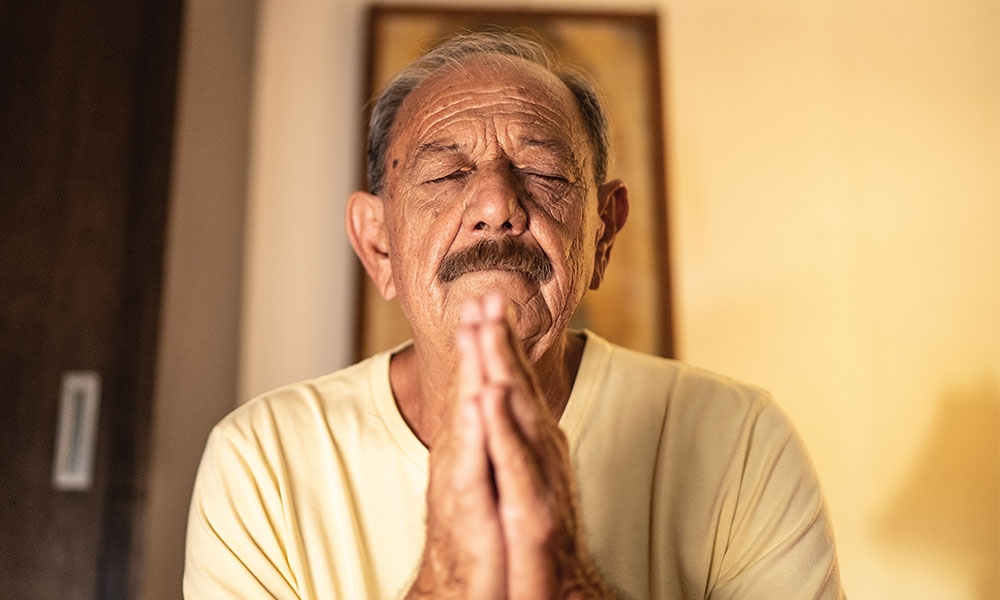
Prayerful ways to examine your conscience
While the Church requires that we confess our sins once a year, many find more frequent reception of the sacrament of reconciliation to be a spiritually enriching practice. Whether we go once a month or less often, setting aside time to prayerfully reflect on our thoughts, words and actions to see where we’ve fallen short in loving God and our neighbor is essential for a fruitful experience of the sacrament.
Though the Ten Commandments are often a go-to resource in examining our conscience, rotating through a series of other examinations can help to deepen our awareness of the ways in which we need God’s love and mercy. Here are other resources we can use to help us:
The precepts of the Church
Think of the precepts of the Church as a list of the most foundational practices of our faith: Do we attend Mass on Sundays and Holy Days of Obligation, receive holy Communion during the Easter season, go to confession at least once a year, observe the days of fasting and abstinence and provide for the Church’s needs?
Eight beatitudes
These are the criteria for holiness. To be holy means to be poor in spirit, detached from our possessions and relationships; to mourn well; to be humble and meek; to hunger and thirst for the things of God; to show mercy toward others; to be pure of heart, doing all for the love of God; to be peacemakers; to be courageous witnesses of Christ in the world, even to the point of suffering persecution.
Seven deadly sins
Every sin can be traced to one of these seven: pride, envy, sloth, lust, anger, gluttony and greed. As these are the root of all other sins, they are called “deadly.” When we recognize their manifestations in our lives, we are better equipped to overcome them by intentionally practicing their corresponding virtues: humility, kindness, diligence, chastity, meekness, temperance and generosity.
Three theological virtues and the four cardinal virtues
Faith, hope and charity help us live in right relationship with God, while prudence, justice, temperance and fortitude are the four “hinges” of the moral life – they govern our actions. When we study and examine our conscience using these virtues, we learn how to live a good and well-ordered life.
Corporal and spiritual works of mercy
Just as we sin by doing something we ought not do, we can also sin by omission – failing to do good. Jesus affirms this, telling his disciples: “For I was hungry and you gave me no food, I was thirsty and you gave me no drink, a stranger and you gave me no welcome, naked and you gave me no clothing, ill and in prison, and you did not care for me.” (Matthew 25:42-43) Reviewing the works of mercy helps us realize how we are to show mercy, and it can also highlight our neglect in caring for our neighbor’s spiritual and material needs.
Litany of Repentance
Praying through the Litany of Repentance invites us to examine the motives behind our sinful words and actions. By examining our hearts and desires, we will detect other areas that need to be healed by God’s grace.
Next time you approach the sacrament of reconciliation, consider a new examination of conscience. By these various methods, the Holy Spirit will bring to light the various ways in which you need God’s healing and help you to have a more fruitful celebration of this beautiful sacrament.
Maria Cintorino holds a degree in theology. Her writings have appeared in several publications including Homiletic and Pastoral Review, Our Sunday Visitor and the National Catholic Register.



